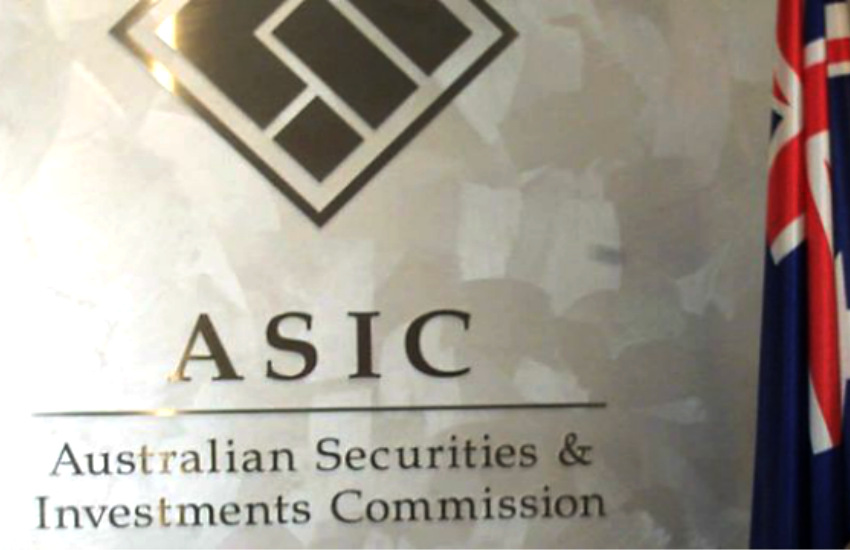Tribunal upholds decision to reject AFSL for SMSF firm
The Administrative Appeals Tribunal of Australia has upheld a decision by ASIC to refuse an AFSL to an accountant wanting to establish an advice firm specialising in superannuation.
In June 2016, a company called S & A Chalhoub Nominees Pty Ltd, controlled by two directors, Mr Akram El-Fahkri (Snr) and his son, Mr Hayaf El-Fahkri (Jnr), applied to ASIC for an AFSL.
Mr El-Fahkri (Snr) is an accountant and wanted to establish a financial advisory business specialising in superannuation including SMSFs.
The applicant also wanted the AFSL to cover class of product advice for basic deposit products, general insurance products, life risk insurance products, simple managed investment schemes, securities and superannuation.
On 3 July 2017, ASIC wrote to the applicant advising that a preliminary decision had been made to grant the AFSL subject to the applicant meeting specified requirements.
The requirement letter required the applicant to accept the licence conditions, provide the details of the professional indemnity insurance, provide a certificate of currency for the professional indemnity (PI) insurance policy, confirm the applicant’s membership with an ASIC-approved external dispute resolution scheme, provide evidence of the completion of Regulatory Guide 146 training modules and list the commercial continencies the applicant considered when preparing the cash flow projections.
ASIC sent the applicant a letter on 4 October 2017 advising that its application for an AFSL was being recommended for refusal.
The decision by ASIC to refuse the applicant’s application for an AFSL was based on the grounds that PI coverage in the policy provided did not cover the applicant for all services provided under the proposed licence, and that the proposed responsible manager, Mr El-Fahkri, was not RG 146 compliant in securities and SMSF financial products and personal advice.
It was also not satisfied that the applicant would do all things necessary to ensure the financial services covered by the licence would be provided efficiently, honestly and fairly, as the applicant had not responded in a timely and adequate manner to ASIC’s requirements.
In its decision, the Tribunal noted that the ProRisk PI policy being relied on by the applicant contained an exclusion which explicitly excluded any investment advice or opinion provided by the adviser or any allegation of failure by them to provide investment advice or opinion.
Under cross-examination, Mr El-Fahkri (Snr) conceded that the PI policy the applicant proposed to rely upon contained an exclusion which meant that the policy would not cover the applicant for the provision of investment advice.
He also conceded that the description of the business used for the purpose of the PI policy quote was narrower than that used by the applicant for the purpose of the AFSL application.
The Tribunal found that the PI policy was not sufficiently broad to cover the investment advice services to be provided under the AFSL.
In relation to the knowledge requirements, Mr El-Fahkri (Snr) conceded in cross-examination that he had only completed training for general advice in life insurance, managed investments, superannuation, and general insurance and had not completed training for either securities or self-managed superannuation funds. He also conceded that he had not completed any training in personal advice.
On that basis, the Tribunal found that Mr El-Fahkri (Snr) had not completed the required training and that, therefore, the applicant did not satisfy the knowledge requirements under RG 105, RG 146 and section 912A(1) of the Act.
The Tribunal also stated that Mr El-Fahkri (Snr) had not provided an explanation as to why he had not sought to properly understand the deficiencies raised by ASIC in the application process at an earlier point in time, nor could he explain why no attempt had been made to remedy the deficiencies before the Tribunal hearing.
The Tribunal acknowledged in its decision that Mr El-Fahkri (Snr) appeared to be an honest and decent man who was genuinely struggling to “understand the complexity of the statutory regime that the applicant would need to comply with if it were to be granted an AFSL”.
However, it said that it could not be satisfied that the applicant would do all things necessary to ensure that the financial services proposed to be covered by the AFSL will be provided efficiently, honestly and fairly as required by section 912A(1)(a) of the Act.
The Tribunal therefore decided to affirm the decision by ASIC to refuse the AFSL.

Miranda Brownlee
Miranda Brownlee is the deputy editor of SMSF Adviser, which is the leading source of news, strategy and educational content for professionals working in the SMSF sector.
Since joining the team in 2014, Miranda has been responsible for breaking some of the biggest superannuation stories in Australia, and has reported extensively on technical strategy and legislative updates.
Miranda also has broad business and financial services reporting experience, having written for titles including Investor Daily, ifa and Accountants Daily.
 Astounding, mind boggling, choose your own adjective. Who advised this man to appeal the decision? To think that, after ASIC asked for specific details, the bloke gave the details, the details were totally wrong and unacceptable, and the bloke had the gall to appeal? What is the world coming to?0
Astounding, mind boggling, choose your own adjective. Who advised this man to appeal the decision? To think that, after ASIC asked for specific details, the bloke gave the details, the details were totally wrong and unacceptable, and the bloke had the gall to appeal? What is the world coming to?0 Far to many accountants and inexperienced planners attempting to move away from the training and education support of traditional AFSL that seperate advice from compliance. Holding the license should be limited to only those whose core business is that of licensee and not of adviser.0
Far to many accountants and inexperienced planners attempting to move away from the training and education support of traditional AFSL that seperate advice from compliance. Holding the license should be limited to only those whose core business is that of licensee and not of adviser.0 Seems like a sensible decision. If you can't understand the license requirements(even if difficult to understand), how could someone rely on his investment advice?0
Seems like a sensible decision. If you can't understand the license requirements(even if difficult to understand), how could someone rely on his investment advice?0 One has to wonder if a person that either did not understand, or chose to ignore, the requirements for obtaining an AFSL might in future 'accidentally' offer financial advice to their accounting clients?
One has to wonder if a person that either did not understand, or chose to ignore, the requirements for obtaining an AFSL might in future 'accidentally' offer financial advice to their accounting clients?
While as AFSL holder will have their advice audited for compliance, what is the process for detecting if financial advice is being provided without the required AFSL, other than waiting for a client to be adversely affected and lodging a complaint?0








